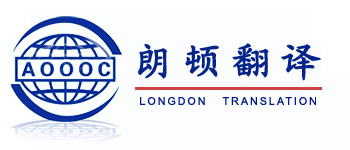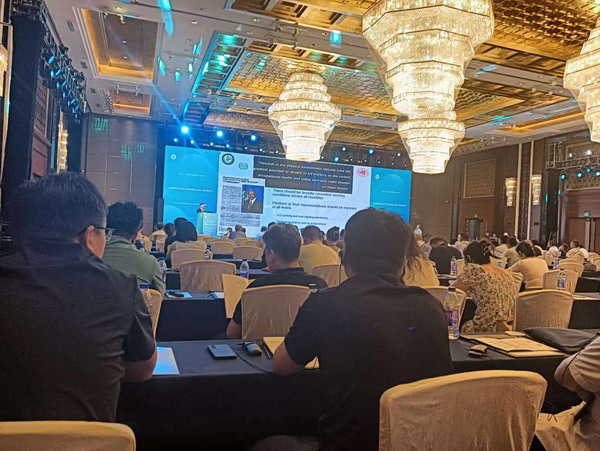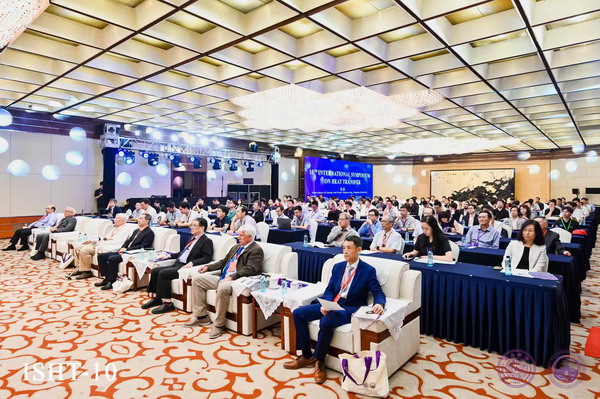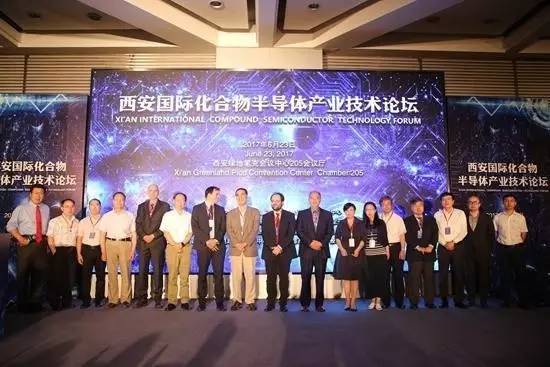The suggestion that we should build alliances between companies, universities, research institutes, and users is a very good one. For example, we could form "Internet Plus" and high-end chip alliances in an effort to strengthen communication on strategies, technology, standards, and markets and promote collaborative innovation. We could look into a system whereby we solicit the key core technologies we need, and whoever has what it takes to make the breakthrough takes the lead, regardless of their background. In doing so, we would give play not only to the role of state-owned enterprises, but also private companies. Alternately, the two could join forces. In addition, we could also explore the formation of more tightly-knit capital-based collaboration mechanisms, establishing investment companies for the R&D of core technologies in order to give play to the strengths of leading companies while driving the development of small and medium-sized enterprises, thereby not only resolving the problem of technologypromotion and application for upstream companies, but also addressing the lack of proprietary technologies in downstream companies.
ę╗ą®═¼ųŠĻP(gu©Īn)ė┌ĮMĮ©«a(ch©Żn)īW(xu©”)čąė├┬ō(li©ón)├╦Ą─Į©ūh║▄║├ĪŻ▒╚╚ń�Ż¼┐╔ęįĮMĮ©"╗ź┬ō(li©ón)ŠW(w©Żng)+"┬ō(li©ón)├╦��ĪóĖ▀Č╦ąŠŲ¼┬ō(li©ón)├╦Ą╚Ż¼╝ėÅŖ(qi©óng)æ(zh©żn)┬į�����Īó╝╝ąg(sh©┤)��Īóś╦(bi©Īo)£╩(zh©│n)Īó╩ął÷(ch©Żng)Ą╚£Ž═©ģf(xi©”)ū„���Ż¼ģf(xi©”)═¼äō(chu©żng)ą┬╣źĻP(gu©Īn)����Ī���Ż┐╔ęį╠Į╦„ĖŃĮę░±ÆņÄø����Ż¼░čąĶꬥ─ĻP(gu©Īn)µI║╦ą─╝╝ąg(sh©┤)ĒŚ(xi©żng)─┐Åł│÷░±üĒ(l©ói)����Ż¼ėóą█▓╗šō│÷╠Ä����Ż¼šl(shu©¬)ėą▒Š╩┬šl(shu©¬)Š═Įę░±�����ĪŻį┌▀@ĘĮ├µ����Ż¼╝╚ę¬░l(f©Ī)ō]ć°(gu©«)ėąŲ¾śI(y©©)ū„ė├Ż¼ę▓ę¬░l(f©Ī)ō]├±ĀI(y©¬ng)Ų¾śI(y©©)ū„ė├�Ż¼ę▓┐╔ęįā╔ĘĮ├µ┬ō(li©ón)╩ųüĒ(l©ói)Ė╔ĪŻ▀Ć┐╔ęį╠Į╦„Ė³╝ėŠo├▄Ą─┘Y▒Šą═ģf(xi©”)ū„ÖC(j©®)ųŲ��Ż¼│╔┴ó║╦ą─╝╝ąg(sh©┤)čą░l(f©Ī)═Č┘Y╣½╦Š��Ż¼░l(f©Ī)ō]²łŅ^Ų¾śI(y©©)ā×(y©Łu)ä▌(sh©¼)��Ż¼Ä¦äė(d©░ng)ųąąĪŲ¾śI(y©©)░l(f©Ī)š╣�����Ż¼╝╚ĮŌøQ╔Žė╬Ų¾śI(y©©)╝╝ąg(sh©┤)═ŲÅVæ¬(y©®ng)ė├å¢Ņ}Ż¼ę▓ĮŌøQŽ┬ė╬Ų¾śI(y©©)"╚▒ąŠ╔┘╗Ļ"å¢Ņ}��ĪŻ
Fourth, I will talk about enhancing the sense of mission and responsibility of Internet companies and making joint efforts for the sustained and sound development of the Internet.
Ą┌╦─éĆ(g©©)å¢Ņ}�Ż¼ųvųvį÷ÅŖ(qi©óng)╗ź┬ō(li©ón)ŠW(w©Żng)Ų¾śI(y©©)╩╣├³ĖąĪóž¤(z©”)╚╬Ėą��Ż¼╣▓═¼┤┘▀M(j©¼n)╗ź┬ō(li©ón)ŠW(w©Żng)│ų└m(x©┤)ĮĪ┐Ą░l(f©Ī)š╣�ĪŻ
As China's Internet companies have grown in both size and strength, they have played an important role in promoting steady economic growth, creating jobs, and improving public well-being. The sustained and healthy development of companies is not only a goal that entrepreneurs strive towards; it is also essential for our country's development. The future prospects of companies are closely linked to the development of the country. Businesses will struggle to thrive if they do not have the support of the country and people, or if they diverge from the principles of serving the country and people.
╬ęć°(gu©«)╗ź┬ō(li©ón)ŠW(w©Żng)Ų¾śI(y©©)ė╔ąĪĄĮ┤¾Īóė╔╚§ūāÅŖ(qi©óng)���Ż¼į┌ĘĆ(w©¦n)į÷ķL(zh©Żng)��Īó┤┘Š═śI(y©©)��Īó╗▌├±╔·Ą╚ĘĮ├µ░l(f©Ī)ō]┴╦ųžę¬ū„ė├�����ĪŻūīŲ¾śI(y©©)│ų└m(x©┤)ĮĪ┐Ą░l(f©Ī)š╣Ż¼╝╚╩ŪŲ¾śI(y©©)╝ęŖ^ČĘĄ──┐ś╦(bi©Īo)�����Ż¼ę▓╩Ūć°(gu©«)╝ę░l(f©Ī)š╣Ą─ąĶę¬��ĪŻŲ¾śI(y©©)├³▀\(y©┤n)┼cć°(gu©«)╝ę░l(f©Ī)š╣ŽóŽóŽÓĻP(gu©Īn)ĪŻ├ōļx┴╦ć°(gu©«)╝ęų¦│ų�����Īó├ōļx┴╦╚║▒Ŗų¦│ų����Ż¼├ōļx┴╦×ķć°(gu©«)╝ęĘ■äš(w©┤)Īó×ķ╚╦├±Ę■äš(w©┤)�Ż¼Ų¾śI(y©©)ļyęįū÷ÅŖ(qi©óng)ū÷┤¾ĪŻ
At a joint meeting of political advisors from the China National Democratic Construction Association and the All-China Federation of Industry and Commerce held during the Fourth Session of the 12th National Committee of the CPPCC earlier this year, I stressed that China's basic economic system, whereby public ownership plays the dominant role and ownerships in other forms develop side by side, is a major political principle established by the CPC. It is an important component of the system of Chinese socialism, and a necessity for improving the socialist market economy. I also stressed that the CPC's stance on upholding the basic economic system is clear, consistent, and constantly deepening, that it has never wavered, and that it will not and cannot change. Not only did I speak at the meeting, my speech was quickly made available to the public. The intention was to offer reassurance to our country's many entrepreneurs.
Į±─Ļ╚½ć°(gu©«)"ā╔Ģ■(hu©¼)"Ų┌ķg���Ż¼╬ęį┌ģó╝ė╚½ć°(gu©«)š■ģf(xi©”)╩«Č■ī├╦─┤╬Ģ■(hu©¼)ūh├±Į©��Īó╣ż╔╠┬ō(li©ón)Įń╬»åT┬ō(li©ón)ĮMĢ■(hu©¼)Ģr(sh©¬)ÅŖ(qi©óng)š{(di©żo)�����Ż¼īŹ(sh©¬)ąą╣½ėąųŲ×ķų„¾w����ĪóČÓĘN╦∙ėąųŲĮø(j©®ng)Ø·(j©¼)╣▓═¼░l(f©Ī)š╣Ą─╗∙▒ŠĮø(j©®ng)Ø·(j©¼)ųŲČ╚�����Ż¼╩Ūųąć°(gu©«)╣▓«a(ch©Żn)³h┤_┴óĄ─ę╗ĒŚ(xi©żng)┤¾š■ĘĮßśŻ¼╩Ūųąć°(gu©«)╠ž╔½╔ńĢ■(hu©¼)ų„┴xųŲČ╚Ą─ųžę¬ĮM│╔▓┐Ęų��Ż¼ę▓╩Ū═Ļ╔Ų╔ńĢ■(hu©¼)ų„┴x╩ął÷(ch©Żng)Įø(j©®ng)Ø·(j©¼)¾wųŲĄ─▒ž╚╗ę¬Ū¾��Ż╗╬ęéā³hį┌łį(ji©Īn)│ų╗∙▒ŠĮø(j©®ng)Ø·(j©¼)ųŲČ╚╔ŽĄ─ė^³c(di©Żn)╩Ū├„┤_Ą─�Īóę╗ž×Ą─Ż¼Č°Ūę╩Ū▓╗öÓ╔Ņ╗»Ą─��Ż¼Å─üĒ(l©ói)ø]ėąäė(d©░ng)ōu�Ż¼▀@╩Ū▓╗Ģ■(hu©¼)ūāĄ─Ż¼ę▓╩Ū▓╗─▄ūāĄ─�����ĪŻ╬ę▓╗āHųv┴╦įÆ�����Ż¼Č°Ūę║▄┐ņŠ═░č╬ęĄ─ųvįÆ╣½ķ_░l(f©Ī)▒Ē┴╦���Ż¼▀@Š═╩Ūę¬ūīÅV┤¾Ų¾śI(y©©)╝ę│įéĆ(g©©)"Č©ą─═Ķ"���ĪŻ
In a country as large and as populous as ours, economic and social development is only possible with the concerted efforts of the many. The public and non-public sectors should support and complement one another, as opposed to mutually excluding and undermining each other. If our non-public enterprises get bigger, stronger, and go global, thereby making a bigger contribution to the country and people, it is something that the country should be proud of, and there is no doubt whatsoever that the CPC and government are behind this.
╬ęéāć°(gu©«)╝ę▀@├┤┤¾�����Īó╚╦┐┌▀@├┤ČÓŻ¼ę¬░čĮø(j©®ng)Ø·(j©¼)╔ńĢ■(hu©¼)░l(f©Ī)š╣ĖŃ╔Ž╚ź�����Ż¼ąĶę¬Ė„ĘĮ├µ²Rą─ģf(xi©”)┴”Ė╔����Ż¼╣½ėąųŲĮø(j©®ng)Ø·(j©¼)ĪóĘŪ╣½ėąųŲĮø(j©®ng)Ø·(j©¼)æ¬(y©®ng)įōŽÓ▌oŽÓ│╔���ĪóŽÓĄ├굚├Ż¼Č°▓╗╩ŪŽÓ╗ź┼┼│Ō�ĪóŽÓ╗źĄųŽ¹ĪŻĘŪ╣½ėąųŲŲ¾śI(y©©)ĖŃ┤¾┴╦����ĪóĖŃ║├┴╦ĪóĖŃĄĮ╩└Įń╔Ž╚ź┴╦����Ż¼×ķć°(gu©«)╝ę║═╚╦├±ū„│÷Ė³┤¾žĢ½I(xi©żn)┴╦Ż¼╩Ūć°(gu©«)╝ęĄ─╣Ōśs���ĪŻ³h║═š■Ė««ö(d©Īng)╚╗ę¬ų¦│ų�Ż¼▀@ę╗³c(di©Żn)╩Ū║┴¤o(w©▓)ę╔┴xĄ─ĪŻ
China has more than 700 million Internet users, and this makes management not only necessary but also highly complex and challenging. Companies need to assume their responsibilities, and so do the CPC and government. No one side can shirk its responsibilities. Websites should assume the principal responsibility for the management of online information, while the administrative departments of the government should enhance their regulation. Competent authorities and companies should collaborate and coordinate closely with each other, so as to avoid the old problem of management being overly lax one moment and overly tight the next, and pave a new path of joint management and benign interaction.
į┌╬ęć°(gu©«)��Ż¼7ā|ČÓ╚╦╔Ž╗ź┬ō(li©ón)ŠW(w©Żng)����Ż¼┐ŽČ©ąĶę¬╣▄└ĒŻ¼Č°Ūę▀@éĆ(g©©)╣▄└Ē╩Ū║▄Å═(f©┤)ļs���Īó║▄Ę▒ųžĄ─���ĪŻŲ¾śI(y©©)ę¬│ąō·(d©Īn)Ų¾śI(y©©)Ą─ž¤(z©”)╚╬Ż¼³h║═š■Ė«ę¬│ąō·(d©Īn)³h║═š■Ė«Ą─ž¤(z©”)╚╬�Ż¼──ę╗▀ģČ╝▓╗─▄Ę┼Śēūį╝║Ą─ž¤(z©”)╚╬ĪŻŠW(w©Żng)╔Žą┼Žó╣▄└Ē��Ż¼ŠW(w©Żng)šŠæ¬(y©®ng)žō(f©┤)ų„¾wž¤(z©”)╚╬�Ż¼š■Ė«ąąš■╣▄└Ē▓┐ķTę¬╝ėÅŖ(qi©óng)▒O(ji©Īn)╣▄ĪŻų„╣▄▓┐ķT��ĪóŲ¾śI(y©©)ę¬Į©┴ó├▄Ūąģf(xi©”)ū„ģf(xi©”)š{(di©żo)Ą─ĻP(gu©Īn)ŽĄ�Ż¼▒▄├Ō▀^╚źĮø(j©®ng)│Ż│÷¼F(xi©żn)Ą─"ę╗Ę┼Š═üyĪóę╗╣▄Š═╦└"¼F(xi©żn)Ž¾����Ż¼ū▀│÷ę╗Śl²Rūź╣▓╣▄Īó┴╝ąį╗źäė(d©░ng)Ą─ą┬┬Ę���ĪŻ
First of all, we should support and encourage businesses whilst promoting regulated development. Companies are oriented directly towards markets. Located on the front lines of innovation and consumer demand, they are highly sensitive to the market, perceptive of the need for innovation, and have a strong desire to innovate. We should support companies in becoming the principal actors in R&D, innovation, and industry, and support them in deploying cutting edge technologies, pursuing innovation in core technologies, creating and making use of all opportunities, engaging in global competition, and securing broader prospects for overseas development.
Ą┌ę╗����Ż¼łį(ji©Īn)│ų╣─äŅ(l©¼)ų¦│ų║═ęÄ(gu©®)ĘČ░l(f©Ī)š╣▓óąą����ĪŻŲ¾śI(y©©)ų▒Įė├µŽ“╩ął÷(ch©Żng)Ż¼╠Äį┌äō(chu©żng)ą┬Ą┌ę╗ŠĆ����Ż¼╠Äį┌šŲ╬š├±▒ŖąĶꬥ┌ę╗ŠĆŻ¼╩ął÷(ch©Żng)ĖąėX├¶õJ��Ż¼äō(chu©żng)ą┬ąĶŪ¾├¶Ėą��Ż¼äō(chu©żng)ą┬įĖ═¹ÅŖ(qi©óng)┴ę���ĪŻæ¬(y©®ng)įō╣─äŅ(l©¼)║═ų¦│ųŲ¾śI(y©©)│╔×ķčą░l(f©Ī)ų„¾w����Īóäō(chu©żng)ą┬ų„¾wĪó«a(ch©Żn)śI(y©©)ų„¾w��Ż¼╣─äŅ(l©¼)║═ų¦│ųŲ¾śI(y©©)▓╝ŠųŪ░čž╝╝ąg(sh©┤)����Ż¼═Ųäė(d©░ng)║╦ą─╝╝ąg(sh©┤)ūįų„äō(chu©żng)ą┬Ż¼äō(chu©żng)įņ║═░č╬šĖ³ČÓÖC(j©®)Ģ■(hu©¼)���Ż¼ģó┼cć°(gu©«)ļHĖé(j©¼ng)ĀÄ(zh©źng)��Ż¼═žš╣║Ż═Ō░l(f©Ī)š╣┐šķg����ĪŻ
Today, problems such as cut-throat competition and the abuse of dominant market positions are present in China's Internet market, and small and medium-sized enterprises have voiced much dissatisfaction over this. It is therefore important that we regulate the market and encourage benign competition. This will not only help enterprises to unleash their innovativeness, raise their competitiveness, and increase their market shares, but will also serve to balance the interests of various parties, safeguard national interests, and ensure that the public are better served. We need to step up our protection of intellectual property rights, raising the price of infringement and the cost of breaking the law in order to deter such acts. At the Fourth Plenary Session of the 18th CPC Central Committee in 2014, we proposed improving a system for protecting property rights with fairness as the core principle, better protecting the property rights of natural persons and economic organizations of all types of ownership, andabolishing clauses in laws and regulations that go against the principle of fairness. These requirements need to be implemented as soon as possible.
«ö(d©Īng)Ū░����Ż¼╬ęć°(gu©«)╗ź┬ō(li©ón)ŠW(w©Żng)╩ął÷(ch©Żng)ę▓┤µį┌ę╗ą®É║ąįĖé(j©¼ng)ĀÄ(zh©źng)Īó×Eė├╩ął÷(ch©Żng)ų¦┼õĄž╬╗Ą╚Ūķør����Ż¼ųąąĪŲ¾śI(y©©)ī”(du©¼)┤╦ęŌęŖ▓╗╔┘ĪŻ▀@ĘĮ├µ���Ż¼ę¬ęÄ(gu©®)ĘČ╩ął÷(ch©Żng)ų╚ą“���Ż¼╣─äŅ(l©¼)▀M(j©¼n)ąą┴╝ąįĖé(j©¼ng)ĀÄ(zh©źng)����ĪŻ▀@╝╚ėą└¹ė┌╝ż░l(f©Ī)Ų¾śI(y©©)äō(chu©żng)ą┬╗Ņ┴”����Īó╠ß╔²Ėé(j©¼ng)ĀÄ(zh©źng)─▄┴”���ĪóöU(ku©░)┤¾╩ął÷(ch©Żng)┐šķg���Ż¼ėųėą└¹ė┌ŲĮ║ŌĖ„ĘĮ└¹ęµĪóŠSūo(h©┤)ć°(gu©«)╝ę└¹ęµ���ĪóĖ³║├Ę■äš(w©┤)░┘ąš�����ĪŻę¬╝ė┤¾ų¬ūR(sh©¬)«a(ch©Żn)ÖÓ(qu©ón)▒Żūo(h©┤)┴”Č╚����Ż¼╠ßĖ▀ŪųÖÓ(qu©ón)┤·ār(ji©ż)║═▀`Ę©│╔▒ŠŻ¼šæž▀`Ę©ŪųÖÓ(qu©ón)ąą×ķ���ĪŻ³hĄ─╩«░╦ī├╦─ųą╚½Ģ■(hu©¼)╠ß│÷ĮĪ╚½ęį╣½ŲĮ×ķ║╦ą─įŁätĄ─«a(ch©Żn)ÖÓ(qu©ón)▒Żūo(h©┤)ųŲČ╚����Ż¼╝ėÅŖ(qi©óng)ī”(du©¼)Ė„ĘN╦∙ėąųŲĮø(j©®ng)Ø·(j©¼)ĮM┐Ś║═ūį╚╗╚╦žö(c©ói)«a(ch©Żn)ÖÓ(qu©ón)Ą─▒Żūo(h©┤)��Ż¼ŪÕ└Ēėą▀`╣½ŲĮĄ─Ę©┬╔Ę©ęÄ(gu©®)Śl┐Ņ���ĪŻ▀@ą®ę¬Ū¾ę¬▒M┐ņ┬õīŹ(sh©¬)ĄĮ╬╗�ĪŻ
Secondly, we should combine policy guidance and law-based management. To create an environment more favorable to business, the government must accelerate the reform of its review and approval, financing, and patent systems, cut the number of repeated checks and accreditations, implement a "higher-price-for-higher-quality" procurement system, lighten the financial burden on businesses, and dismantle institutional barriers. Following the Third Plenary Session of the 18th CPC Central Committee in 2013, the Central Committee established the Central Leading Group for Comprehensively Deepening Reform with me as the leader. Many of the reforms introduced by the group are linked with what I have just mentioned. It is essential that reform continues to move forward. This is what I meant when I said that we had to have the courage to tackle tough problems, brave treacherous waters, and surmount formidable obstacles.
Ą┌Č■�����Ż¼łį(ji©Īn)│ųš■▓▀ę²ī¦(d©Żo)║═ę└Ę©╣▄└Ē▓ó┼e�����ĪŻš■Ė«ę¬×ķŲ¾śI(y©©)░l(f©Ī)š╣?f©żn)Iįņ┴╝║├Łh(hu©ón)Š│�Ż¼╝ė┐ņ═Ų▀M(j©¼n)īÅ┼·ųŲČ╚Īó╚┌┘YųŲČ╚��ĪóīŻ└¹ųŲČ╚Ą╚Ė─Ė’���Ż¼£p╔┘ųžÅ═(f©┤)Öz£y(c©©)šJ(r©©n)ūC��Ż¼╩®ąąā×(y©Łu)┘|(zh©¼)ā×(y©Łu)ār(ji©ż)š■Ė«▓╔┘Å(g©░u)ųŲČ╚���Ż¼£p▌pŲ¾śI(y©©)žō(f©┤)ō·(d©Īn)��Ż¼ŲŲ│²¾wųŲÖC(j©®)ųŲšŽĄK��ĪŻ³hĄ─╩«░╦ī├╚²ųą╚½Ģ■(hu©¼)ęį║¾��Ż¼³hųąčļ│╔┴ó┴╦╚½├µ╔Ņ╗»Ė─Ė’ŅI(l©½ng)ī¦(d©Żo)ąĪĮMŻ¼╬ę«ö(d©Īng)ĮMķL(zh©Żng)�Ż¼ęčĮø(j©®ng)═Ų│÷Ą─║▄ČÓĖ─Ė’ĘĮ░ĖČ╝═¼▀@ą®ĘĮ├µėą┬ō(li©ón)ŽĄĪŻĖ─Ė’ę¬└^└m(x©┤)═Ų▀M(j©¼n)�Ż¼ę▓Š═╩Ū╬ęšfĄ─ę¬Ėęė┌┐ąė▓╣ŪŅ^Ż¼Ėęė┌╔µļU(xi©Żn)×®���ĪóĻJļyĻP(gu©Īn)��ĪŻ
At the same time, we need to accelerate the process of Internet legislation and refine law-based regulatory measures in order to defuse Internet-related risks. In the recent cases of Ezubao and Zhongjinxi, "Internet finance" was used as a ploy for the illegal raising of funds. This resulted in severe financial losses for many members of the public, having an extremely negative impact on our society. Cases of online fraud are currently on the rise. In addition to assuming various new forms, such scams are demonstrating increasingly high levels of technological sophistication. This is a reminder that we must be vigilant of the spread of risks as we are developing new technologies and new business.
═¼Ģr(sh©¬)����Ż¼ę¬╝ė┐ņŠW(w©Żng)Įj(lu©░)┴óĘ©▀M(j©¼n)│╠���Ż¼═Ļ╔Ųę└Ę©▒O(ji©Īn)╣▄┤ļ╩®����Ż¼╗»ĮŌŠW(w©Żng)Įj(lu©░)’L(f©źng)ļU(xi©Żn)ĪŻŪ░Č╬Ģr(sh©¬)ķg░l(f©Ī)╔·Ą─eūŌīÜ�����ĪóųąĢxŽĄ░Ė╝■���Ż¼┤“ų°"ŠW(w©Żng)Įj(lu©░)Į╚┌"Ųņ╠¢(h©żo)ĘŪĘ©╝»┘Y���Ż¼ĮoėąĻP(gu©Īn)╚║▒ŖĦüĒ(l©ói)ć└(y©ón)ųžžö(c©ói)«a(ch©Żn)ōp╩¦Ż¼╔ńĢ■(hu©¼)ė░Ēæ╩«ĘųÉ║┴ėĪ�Ż¼F(xi©żn)į┌Ż¼ŠW(w©Żng)Įj(lu©░)įp“_░Ė╝■įĮüĒ(l©ói)įĮČÓ���Ż¼ū„░Ė╩ųČ╬╗©śėĘŁą┬�Ż¼╝╝ąg(sh©┤)║¼┴┐įĮüĒ(l©ói)įĮĖ▀����ĪŻ▀@ę▓╠ßąč╬ęéāŻ¼į┌░l(f©Ī)š╣ą┬╝╝ąg(sh©┤)ą┬śI(y©©)äš(w©┤)Ģr(sh©¬)���Ż¼▒žĒÜŠ»╠Ķ’L(f©źng)ļU(xi©Żn)┬¹čė��ĪŻ
We need to lawfully strengthen the management of big data. Internet companies are in possession of data that has a bearing on our national interests and security, and they must guarantee the security of this data. Companies should view data security as a matter of great importance. If companies run into problems in data protection and security, their reputations may suffer as a result.
ę¬ę└Ę©╝ėÅŖ(qi©óng)ī”(du©¼)┤¾öĄ(sh©┤)ō■(j©┤)Ą─╣▄└Ē��ĪŻę╗ą®╔µ╝░ć°(gu©«)╝ę└¹ęµ�����Īóć°(gu©«)╝ę░▓╚½Ą─öĄ(sh©┤)ō■(j©┤)����Ż¼║▄ČÓšŲ╬šį┌╗ź┬ō(li©ón)ŠW(w©Żng)Ų¾śI(y©©)╩ų└’Ż¼Ų¾śI(y©©)ę¬▒ŻūC▀@ą®öĄ(sh©┤)ō■(j©┤)░▓╚½����ĪŻŲ¾śI(y©©)ę¬ųžęĢöĄ(sh©┤)ō■(j©┤)░▓╚½���ĪŻ╚ń╣¹Ų¾śI(y©©)į┌öĄ(sh©┤)ō■(j©┤)▒Żūo(h©┤)║═░▓╚½╔Ž│÷┴╦å¢Ņ}���Ż¼ī”(du©¼)ūį╝║Ą─ą┼ūu(y©┤)ę▓Ģ■(hu©¼)«a(ch©Żn)╔·▓╗└¹ė░ĒæĪŻ
Thirdly, we need to lay emphasis on both economic and social effects. In addition to economic and legal responsibilities, a business also carries social and moral responsibilities. The bigger a company is, the larger its social and moral responsibilities become, and the more the public will expect of it in this regard. China's Internet companies have assumed many social responsibilities as they have developed, and this needs to be acknowledged. I hope this can be kept up.
Ą┌╚²�Ż¼łį(ji©Īn)│ųĮø(j©®ng)Ø·(j©¼)ą¦ęµ║═╔ńĢ■(hu©¼)ą¦ęµ▓óųžĪŻę╗éĆ(g©©)Ų¾śI(y©©)╝╚ėąĮø(j©®ng)Ø·(j©¼)ž¤(z©”)╚╬��ĪóĘ©┬╔ž¤(z©”)╚╬Ż¼ę▓ėą╔ńĢ■(hu©¼)ž¤(z©”)╚╬��ĪóĄ└Ą┬ž¤(z©”)╚╬�ĪŻŲ¾śI(y©©)ū÷Ą├įĮ┤¾Ż¼╔ńĢ■(hu©¼)ž¤(z©”)╚╬��ĪóĄ└Ą┬ž¤(z©”)╚╬Š═įĮ┤¾���Ż¼╣½▒Ŗī”(du©¼)Ų¾śI(y©©)▀@ĘĮ├µĄ─ę¬Ū¾ę▓Š═įĮĖ▀�ĪŻ╬ęć°(gu©«)╗ź┬ō(li©ón)ŠW(w©Żng)Ų¾śI(y©©)į┌░l(f©Ī)š╣▀^│╠ųą��Ż¼│ąō·(d©Īn)┴╦║▄ČÓ╔ńĢ■(hu©¼)ž¤(z©”)╚╬�����Ż¼▀@ę╗³c(di©Żn)ę¬ĮoėĶ│õĘų┐ŽČ©�����Ż¼ŽŻ═¹└^└m(x©┤)░l(f©Ī)ōP(y©óng)╣Ō┤¾�����ĪŻ
Our actions shape the way that others see us. As I have said before, the most genuine kind of wealth is that which is steeped in love and care, and the most competitive and vibrant companies are those that actively assume their social responsibilities. Websites should not regard visitor numbers as their only goal; online stores should be on guard against counterfeit and shoddy goods; social media platforms should not become rumor-churning machines; and search engines should not determine the order of search results based on the amount of money that people pay. I hope that Internet companies will strike a balance between economic and social considerations, and that they can remember their roots, give back to society, and benefit the people as they grow.
"ąą╔·ė┌╝║���Ż¼├¹╔·ė┌╚╦���ĪŻ"╬ęšf▀^����Ż¼ų╗ėąĖ╗ėąÉ█ą─Ą─žö(c©ói)Ė╗▓┼╩Ūšµš²ėąęŌ┴xĄ─žö(c©ói)Ė╗�����Ż¼ų╗ėąĘeśO│ąō·(d©Īn)╔ńĢ■(hu©¼)ž¤(z©”)╚╬Ą─Ų¾śI(y©©)▓┼╩ŪūŅėąĖé(j©¼ng)ĀÄ(zh©źng)┴”║═╔·├³┴”Ą─Ų¾śI(y©©)�ĪŻ▐kŠW(w©Żng)šŠĄ─▓╗─▄ę╗╬ČūĘŪ¾³c(di©Żn)ō¶┬╩Ż¼ķ_ŠW(w©Żng)ĄĻĄ─ę¬Ę└ĘČ╝┘├░é╬┴ė���Ż¼ū÷╔ńĮ╗ŲĮ┼_(t©ói)Ą─▓╗─▄│╔×ķų{čįöU(ku©░)╔óŲ„��Ż¼ū÷╦č╦„Ą─▓╗─▄āHęįĮoÕXĄ─ČÓ╔┘ū„×ķ┼┼╬╗Ą─ś╦(bi©Īo)£╩(zh©│n)��ĪŻŽŻ═¹ÅV┤¾╗ź┬ō(li©ón)ŠW(w©Żng)Ų¾śI(y©©)łį(ji©Īn)│ųĮø(j©®ng)Ø·(j©¼)ą¦ęµ║═╔ńĢ■(hu©¼)ą¦ęµĮy(t©»ng)ę╗Ż¼į┌ūį╔Ē░l(f©Ī)š╣Ą─═¼Ģr(sh©¬)���Ż¼’ŗ╦«╦╝į┤�����Ż¼╗žł¾(b©żo)╔ńĢ■(hu©¼)�Ż¼įņĖŻ╚╦├±ĪŻ




